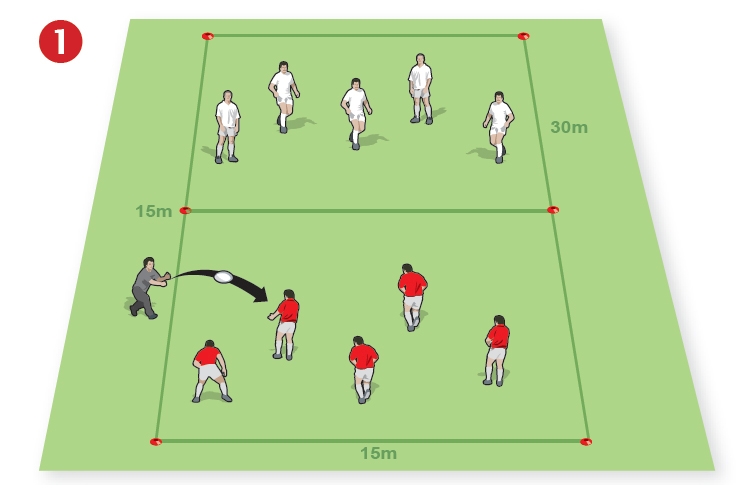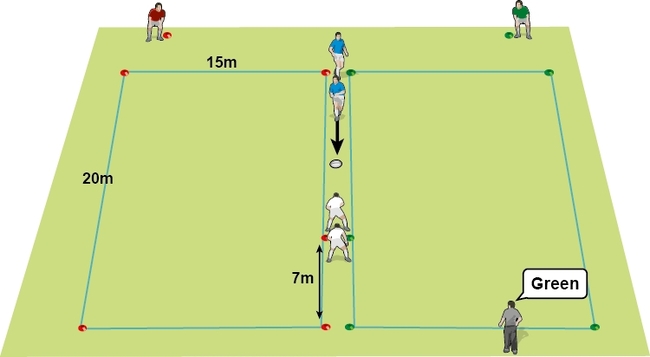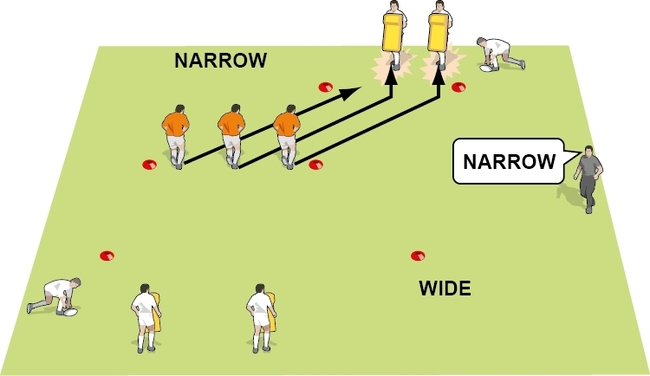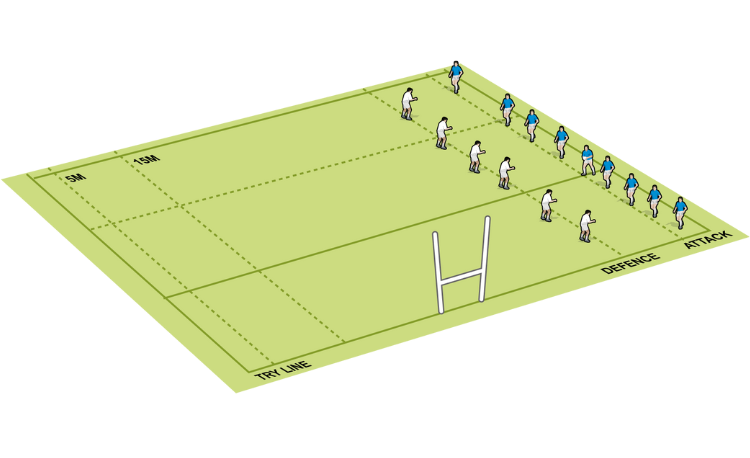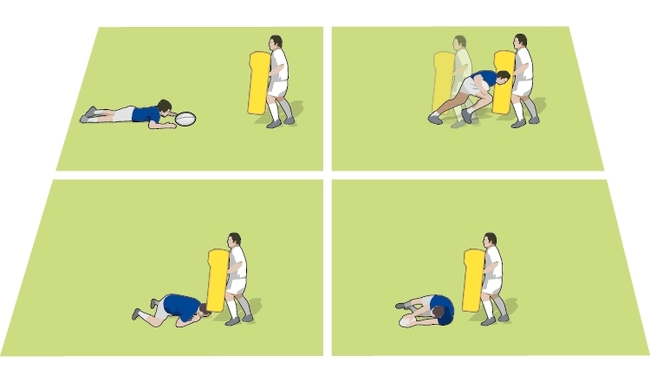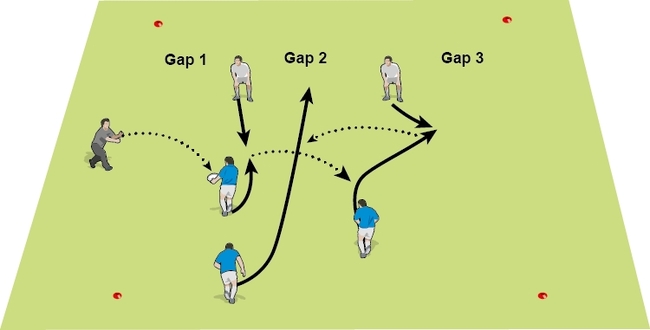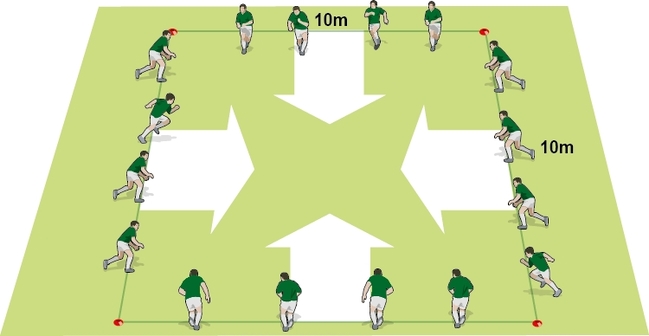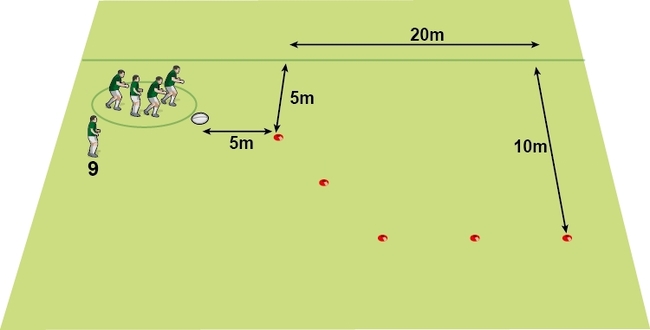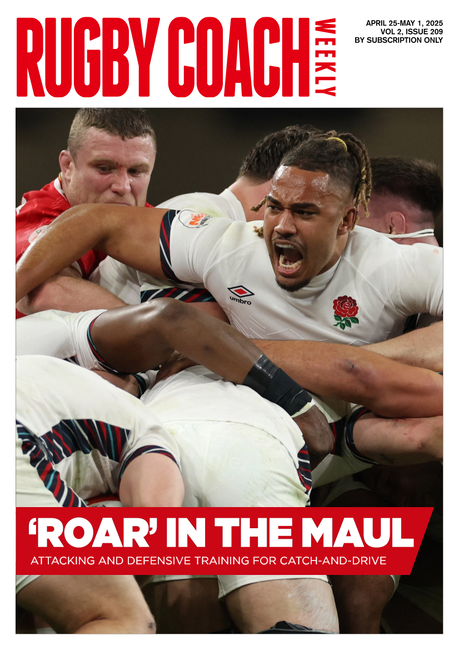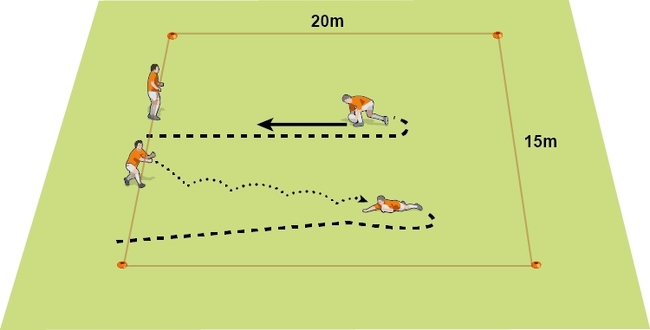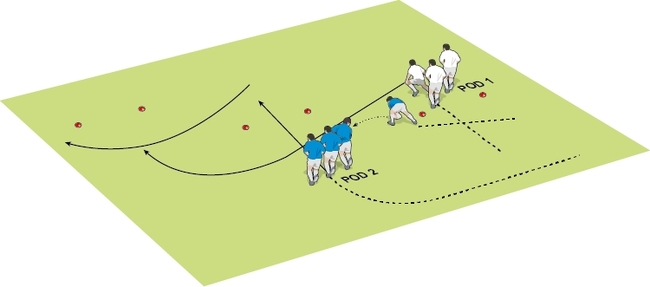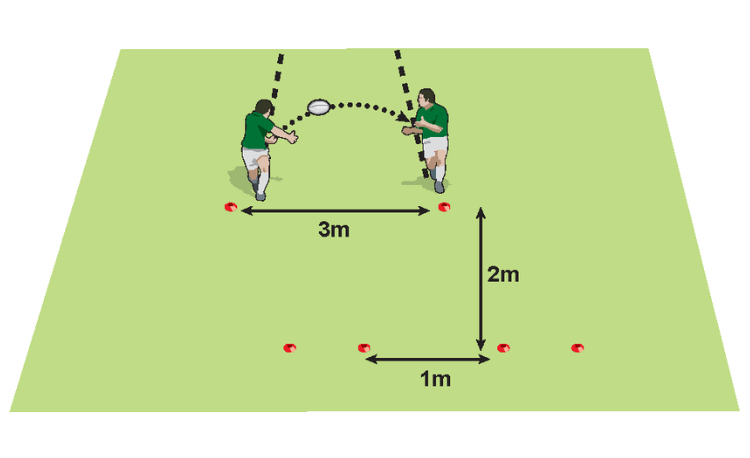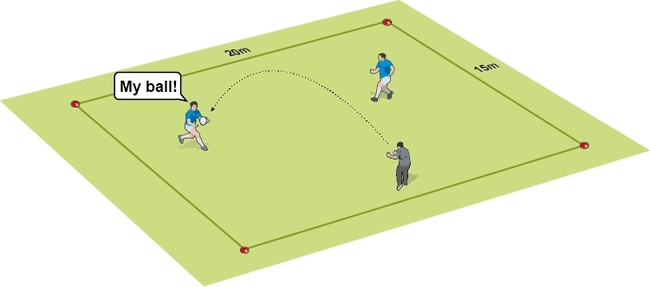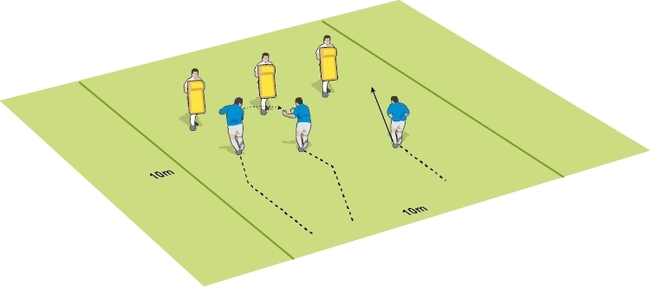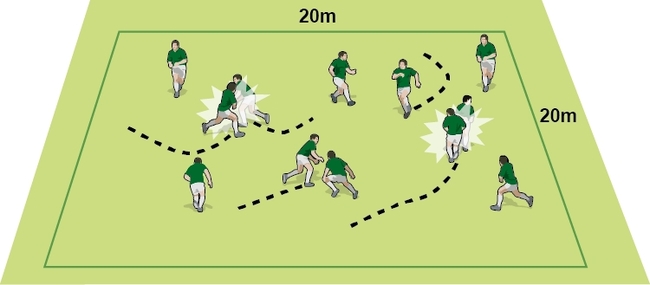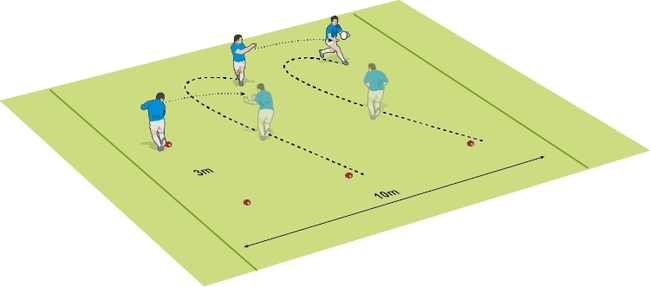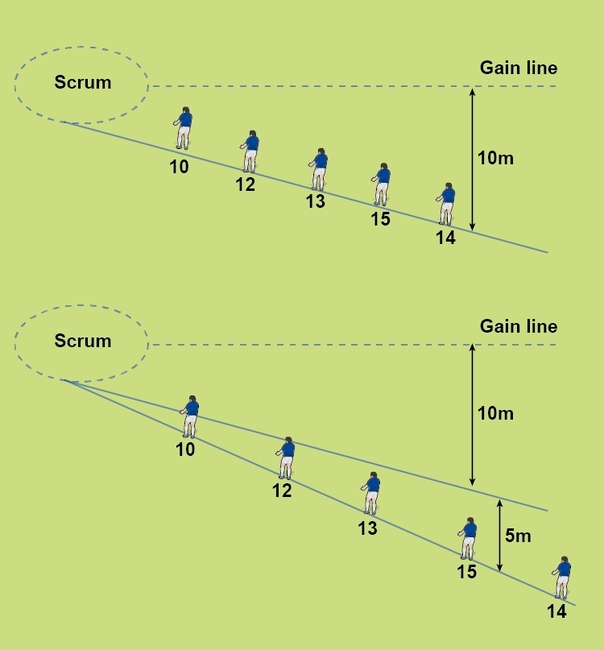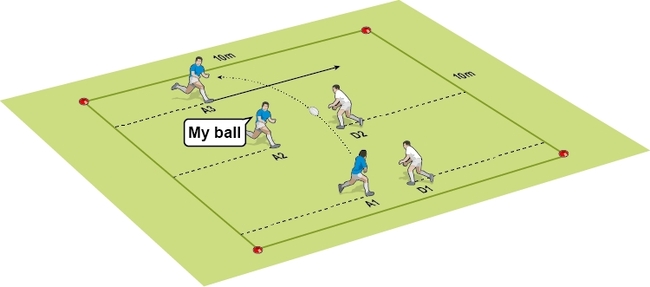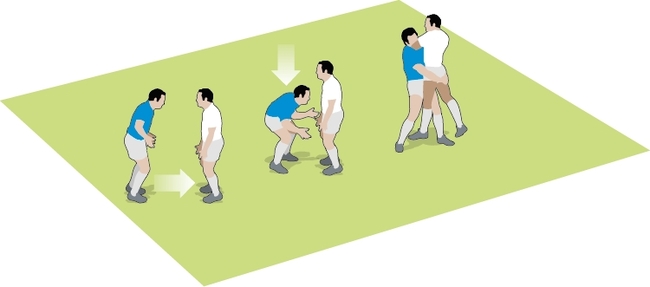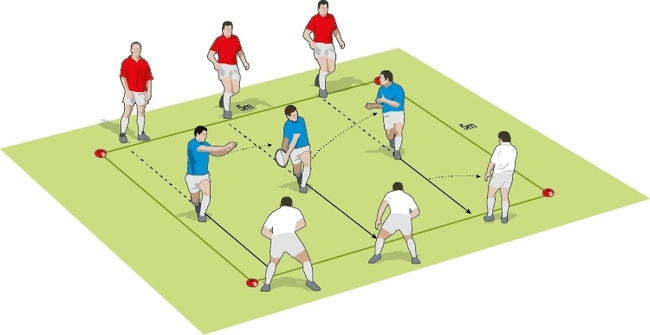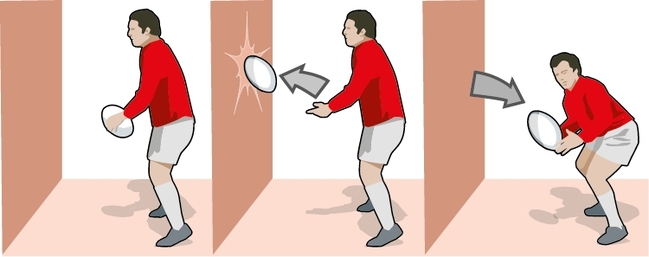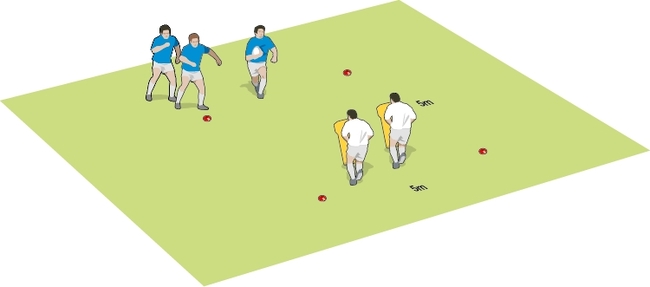U13 rugby drills and games
Your approach
Under-13 rugby, like Under-12s, will start to look like the full game, as seen on TV. With more players involved at scrums and any number allowed into rucks, players will gravitate to some positions. The key focuses should be:
- All players must be good at rucking and passing.
- Working as pairs and threes in defence.
- Lots of decision-making games.
As the players move into this age group, there will be a wider variety in terms of size as players mature at different rates. Even over the period of a month, you might see a player become physically more able, while others seem to be going backwards.
As ever, be patient, keep giving all the players a chance to develop and reap the rewards in later years as the players' physical maturity evens out.
Avoid these two training activities
- Don’t spend too much time on tactics. Instead, play games at training based on scenarios.
- Avoid specific fitness training. Instead, have intense periods of training where skills are put under pressure. You have such a limited time with the players that you shouldn’t waste it on non-rugby related activities.
Set piece development starts here
There are two main set pieces to work on: scrum and kick offs.
With the scrum, train all your players to be able to play in the scrum, even if they are unlikely to play there in the future.
However, you will nominate players in specific positions in the scrum for matches. Therefore, you will have to dedicate more time on this. I would suggest little and often, such has 10 minutes maximum a week in the session.
Spend no more than 10% of your session on playing away from the scrum. This is best done with a “two phase” exercise. That means you play one more “go” after a tackle is made. Complicated plays will bog down training. You are far better off developing simple plays and focusing on the skills to execute them.
Kick offs need nearly as much time as scrums. Think about how to catch high balls, chase the kick and realigning from the kick. The best way to practise? Small kick off scenarios, with say 5 v 5.
9s and 10s
Pigeonholing players is not recommended. However, spend some time developing a couple of options to play both 9 and 10. In training games, make sure at least two players are playing 9 regularly. To a certain extent, do the same with 10, but with more options.
With 9s, you might want to give players a chance to develop their skills before or after training.
Popular Activities
Newsletter Sign Up
Coaches' Testimonials

Colin Shaw

Gary Lee Heavner
Be a more effective, more successful rugby coach
In a recent survey 89% of subscribers said Rugby Coach Weekly makes them more confident, 91% said Rugby Coach Weekly makes them a more effective coach and 93% said Rugby Coach Weekly makes them more inspired.
Get Weekly Inspiration
All the latest techniques and approaches
Rugby Coach Weekly offers proven and easy to use rugby drills, coaching sessions, practice plans, small-sided games, warm-ups, training tips and advice.
We've been at the cutting edge of rugby coaching since we launched in 2005, creating resources for the grassroots youth coach, following best practice from around the world and insights from the professional game.
